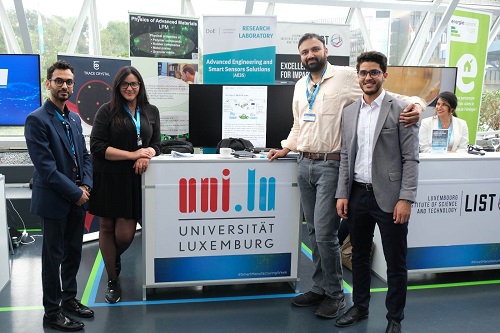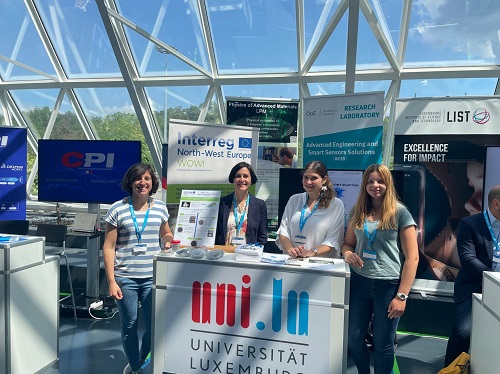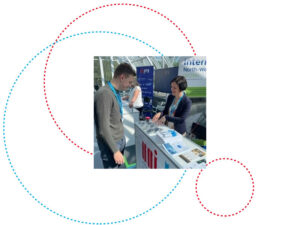In the frame of the Smart Manufacturing Week which took place from 6 to 9 June in Luxembourg, two projects from the Department of Engineering at the University of Luxembourg were presented to find potential partners.
Smart monitoring system
Smart manufacturing is vulnerable to different types of faults and failures (hardware, software, communication, etc.). This vulnerability impacts the behaviour of the entire manufacturing system and its sustainable aspects by increasing machine run time, the energy consumption, maintenance cost, the life of the equipment (hardware and software), economic and environmental waste, etc.

That is why the research project « Smart Monitoring System Diagnosis And Self-healing Approaches For Sustainable Manufacturing (SMOD-SHA) » was launched in 2022 with the support of the Luxembourg National Research Fund (FNR). « Based on our expertise in smart sensors and advanced technologies, we are the pioneers to propose diagnostic, self-healing and fault tolerance approaches toward a sustainable, resilient and healthy manufacturing with optimized resource and energy consumption », explains Prof. Inès Chihi who manages the research laboratory Advanced Engineering & Smart Sensor Solutions (AE3S) at the University of Luxembourg.
AE3S lab provides creative and high-level research. « We wisely choose the scientific issues on which we want to investigate and invent new approaches. Our research has the originality of methodological and applied character. We are focusing to solve scientific and complex problems related to the smart sensor-based monitoring, modeling, identification of complex systems with unpredictable behaviours. The main research fields of the lab are bioengineering, energy, Smart manufacturing », continues Prof. Chihi.
—
Recycling toilet paper
Sewage contains valuable substances that can be used as raw materials for biobased products. However, in North West Europe this potential is hardly exploited yet. This results in loss of valuable materials, increased CO2-emmissions and less use of natural resources. The Interreg North-West Europe project « Wider business Opportunities for raw materials from Waste water (WOW!) was launched in 2018 to make the transition to a more circular approach by matching supply and demand of cellulose, lipids and PHA bioplastics from sewage.

« During the event, we presented the possibility to produce activated biochar from toilet paper (waste) with the ultimate purpose to clean wastewater through nature-based solutions in a circular economy way. turning a problem (waste) into an opportunity (product) is always nice! », mentions Silvia Venditti, Postdoctoral researcher within the Urban water management group at the University of Luxembourg.
« Our research group on urban water management gives special emphasis to the optimisation of treatment processes in wastewater treatment plants and the increase of energy efficiency of wastewater treatment processes. Our research activities focus on fundamental and applied nature with a special focus on energy and environment as well as sustainable use of resources », explains Prof. Joachim Hansen who manages the group.
